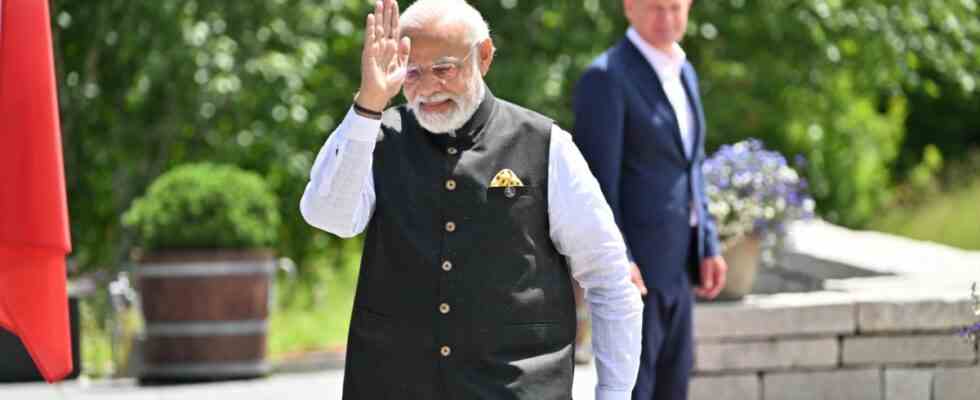Of course, there are many topics to discuss when India’s Prime Minister Narendra Modi travels to Bavaria as a guest of the G-7 summit. Global warming, energy supply, food security, these are the most pressing issues Modi is grappling with in his own vast country. “I look forward to fruitful discussions with world leaders during the summit,” Modi tweeted after landing in Munich. But, of course, the main issue at stake was one on which Modi and the leaders of the G-7 and the EU have quite different opinions: the war in Ukraine, the global food and energy crisis it is causing – and how we can act together against Russia.
Unlike the G-7 countries, India has not joined a harsh condemnation of Russia at the United Nations. Delhi is increasingly buying Russian energy since it has become cheaper – albeit “significantly less per month than the European Union does in an afternoon,” as Indian Foreign Minister Subrahmanyam Jaishankar grimly put on record when criticism of these deals arose. Russia is also the largest arms supplier to the Indian Army, which is the second largest in the world after China’s. There are geopolitical and historical reasons for all of this, which the G-7 countries have paid too little attention to in recent years.
Within the “Quad” group, which includes the USA, Japan and Australia in addition to India, Joe Biden had caused resentment in Delhi in March because he assumed that India was “a bit shaky” when it came to the actions against Russia . But now Narendra Modi has been courted fiercely for several months, in Delhi and on the international stage. A few weeks ago, India stopped wheat flour exports because domestic prices had soared. This was of course bad for the current catastrophic situation of the global food supply and again led to international outrage. But the Indian government did not want to starve its own people or make them pay. After all, Modi is the head of government in a country that, with 1.3 billion people, has about three times the population of the EU. Poverty and supply problems have worsened during the pandemic. So is the smoldering border dispute with China in the Himalayas.
Despite the size of the country, with all the problems and opportunities that come with it, India has not been given the prominence it should have had at such gatherings in recent years. People, including Germany, preferred to do business with the autocrats in Russia and China. As trading partners, they seemed more stable than India. Before he traveled to Elmau, Modi referred to an anniversary in a speech to Indian exiles in Munich: On June 25, 1975, Indira Gandhi had declared a state of emergency. Modi described the moment when the country briefly slipped into autocracy as a “black spot” in Indian democracy. His government is often criticized for taking a populist, Hindu nationalist course. But in contrast to China and in comparison to Russia, it is still a democracy. A very large one, with many people, so it’s also a market.
The fact that Delhi continues to maintain relations with Russia and does not want to give them up under pressure from the so-called West is probably also due to the fact that Moscow and Beijing do not want to be driven even closer together. If the two join forces, it will be bad for India. But it would also be bad for the G7, because these markets would suffice each other for a while. All the more important that Modi and his great country now have a higher profile in the world.

